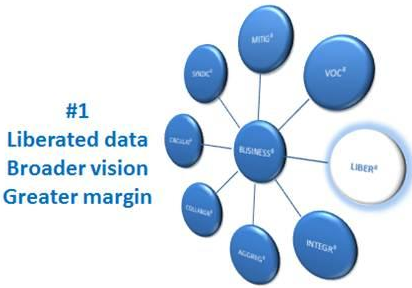 - Turn Big Data into Smart Data
- Turn Big Data into Smart Data

As businesses embrace the digital age and the use of technology increases as we transition from an analog to a digital world, but what does that mean to your business?
- By 2020, digital information will grow beyond 35 trillion gigabytes as all media – voice, TV, radio, print – completes the journey from analog to digital.
- Despite the global recession the Digital Universe grew by 62% to nearly 800,000 petabytes (1million Gb = 1Pb
- By 2020, our Digital Universe will see growth 30 fold on 2010.
- By 2020, business transactions on the internet, B2B and B2C, will reach 450 billion a day.
So how do we embrace this and how does any business bring the value that sits within to the fore and deliver a key asset to the business.

enables a business to identify the key data elements that impact it's business and utilise this to predict, plan and forecast. Don't be left with the laggards and utilise retrospective data, bring it to life, liberate it and see how the business vision broadens and bottom line margins improve.
What to know more, then come into the Buandra Community and start to see how benefit can be delivered to your business.